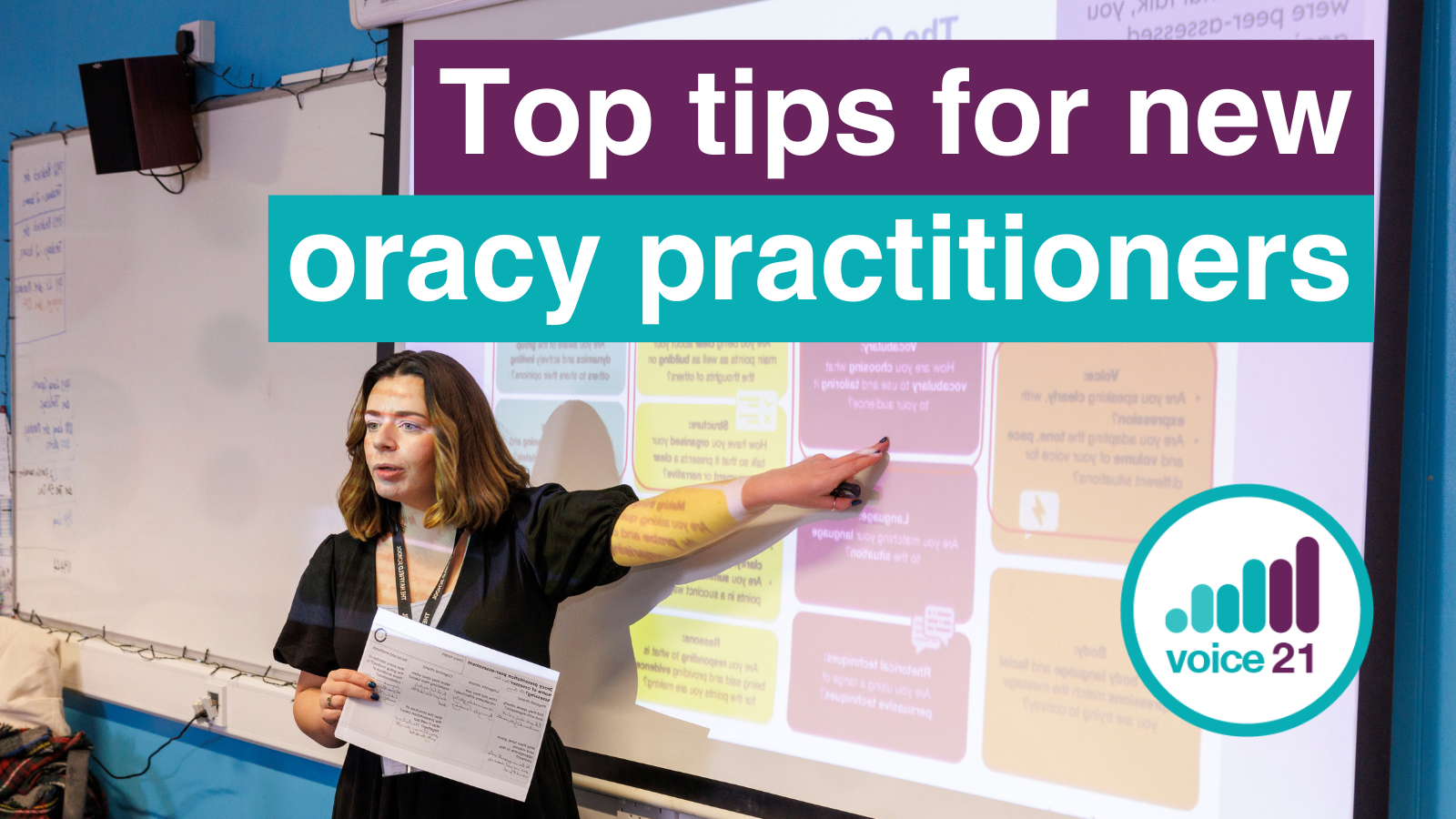
It’s a new school year, and this year, we have just short of 500 new Voice 21 Oracy Schools joining our network of dedicated schools. Knowing where to begin can be tricky, as every school’s context and desires are different. To help your school figure it out, we put together this list of five top tips for new oracy leads and practitioners.
To start your oracy journey off on a solid foundation, take time to collaborate with your colleagues and develop an agreed vision statement that succinctly encapsulates your reasons for becoming a Voice 21 Oracy School. This can then be used as a yardstick for measuring all future decision-making and assessing progress.
You don’t need to implement a sweeping, whole school shift all at once, and implementing too much change too fast can overwhelm both staff and students alike.
Implementing a culture of high expectations around all elements of oracy immediately can help students know from the beginning what is expected of them.
Maintaining high expectations around oracy in the classroom and around school is incredibly important. For example, set high expectations for listening in your classroom by modelling and marking effective listening and responses (Teacher Talk Tactics can be adapted to help you model to support your students).
A great way to ensure that all of your students are aware of any expectations of them (as well as a great way to get to know a new class) is by developing discussion rules together.
By developing these rules in collaboration with your students, you can help afford them a sense of ownership over future discussions. Furthermore, explicitly establishing what constitutes good oracy provides a helpful framework for students to ensure that they are able to regulate their conversations independently as their oracy skills improve.
This is a great space to begin to introduce the idea that learning is as much about getting things wrong as getting things right (at least straight away) which may help resolve the learning anxieties present.
What classroom doesn’t need a few blu tac displays? By personalising the learning environment, you can support students to develop a sense of ownership over their own learning.
Give it an oracy twist! Those classroom discussion rules you’ve just developed together? Make sure everyone can see them at all times! Want to foster independent talk among your students? Our talk tactics make wonderful visual aids to help structure discussions.
These are the bread and butter of the oracy practitioner. The Oracy Framework was developed alongside Oracy Cambridge can be used as a means of formative assessment, enabling you to gauge what your students have or have not yet grasped and informing you what to teach next.
Meanwhile, our Voice 21 Oracy Benchmarks provide a framework to identify, guide and empower oracy practitioners whether within their classroom or as part of a school-wide approach.
© 2024 Voice 21. Voice 21 is a registered charity in England and Wales. Charity number 1152672 | Company no. 08165798